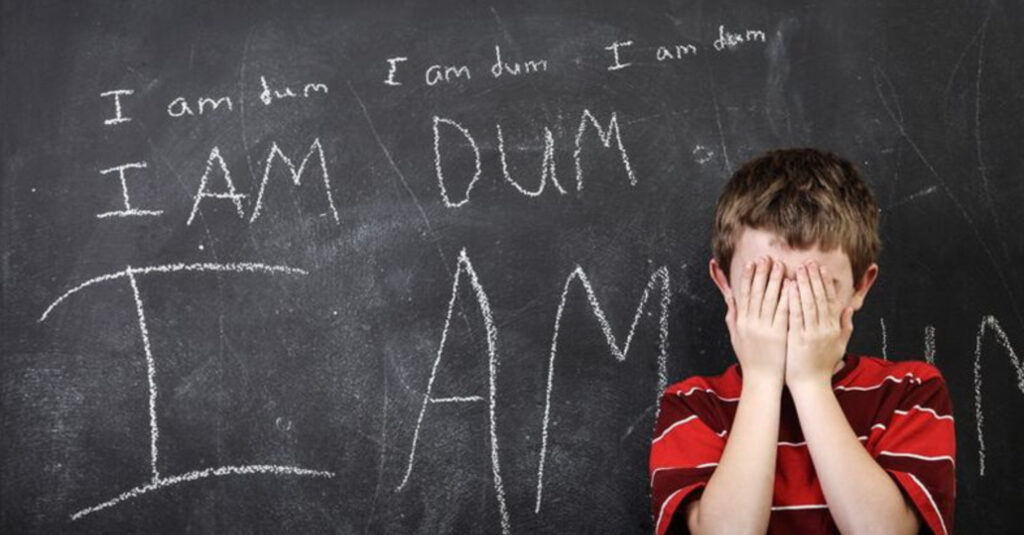
| Attention Deficit-Hyperactivity Disorder (ADHD) is commonly misperceived as just a lack of attention, an assumption stemming from its name. However, this label doesn’t fully capture the complexity of the condition. Alternative terms like “Self-Regulation Disorder” or “Various Attention Stimulus Trait (VAST)” more accurately reflect its nature. ADHD is not just about attention deficits; it’s a multifaceted condition that influences various aspects of life. Impulsivity and Time-Blindness: ADHD often involves impulsive behavior, leading to decisions that can have adverse effects on the individual and their relationships. This impulsivity, coupled with time-blindness – a difficulty in perceiving and managing time – can result in repeated mistakes. These issues often lead to a cycle of regret and diminished self-confidence, impacting one’s self-image. Focus Management Challenges: Contrary to the implication of its name, ADHD is not just about an inability to focus. It’s more about managing focus, which varies greatly depending on interest and stimulus. This inconsistency can make school and work challenging, leading individuals with ADHD to feel incompetent, despite often being intelligent and capable. Hyperactivity and Social Bonding: Hyperactivity, another hallmark of ADHD, extends beyond physical restlessness. It also impacts social interactions. People with ADHD might struggle with understanding social norms, often leading to them being perceived as “too much” in social settings. These challenges can make forming and maintaining relationships difficult, contributing to feelings of loneliness and isolation. Executive Functioning Difficulties: The executive functions, located in the prefrontal cortex, are often less developed in individuals with ADHD. This underdevelopment affects various skills such as emotional regulation, task initiation and completion, and self-awareness. Challenges in these areas can lead to significant disruptions in personal and professional relationships. Emotional Dysregulation: Emotional regulation is a significant challenge for those with ADHD. They often experience emotions more intensely, which can be overwhelming and difficult to manage. This intensity can strain relationships, as the unpredictability of emotional responses can be challenging for both the individual and those around them. Rejection Sensitivity: Individuals with ADHD often have a heightened sensitivity to rejection. This sensitivity can manifest in more intense feelings of hurt and rejection, leading to defensive behaviors like withdrawal or lashing out. This aspect of ADHD can further complicate relationships and social interactions. Inconsistency in Performance: One of the most perplexing aspects of ADHD is the inconsistency in performance and interest. Individuals with ADHD might excel in areas that captivate them but struggle in others that don’t spark their interest. This inconsistency can be confusing and frustrating, particularly if ADHD is undiagnosed, leading to a crisis in self-identity and self-esteem. Perceptions and Stigma: Misunderstandings about ADHD can lead to stigma and negative perceptions, particularly in adolescents. People with ADHD are often wrongly labeled as lazy or problematic, reinforcing a negative self-view. This stigma can be especially damaging during formative years. Internalized Failure: The challenges of ADHD, combined with external misunderstandings, can lead to a sense of internalized failure. Individuals might adopt negative labels from their environment, seeing themselves as incompetent or problematic. This self-view can be detrimental to their self-esteem and personal growth. Despite these challenges, with the right support and treatment, individuals with ADHD can thrive. Access to therapy, coaching, and appropriate medical treatment can be transformative. Additionally, finding a community of others with ADHD, such as support groups and conferences, can be incredibly beneficial. Sharing experiences and strategies with others who understand can significantly improve self-esteem and provide a sense of belonging. References: Adult attention-deficit/hyperactivity disorder (ADHD) – Diagnosis and treatment – Mayo Clinic. (2023, January 25). https://www.mayoclinic.org/diseases-conditions/adult-adhd/diagnosis-treatment/drc-20350883#:~:text=and%20certain%20medications-,Treatment,they%20don%27t%20cure%20it. Altomara, D. (2019, December 23). What is Impulsivity (Impulsive Behavior)? WebMD.https://www.webmd.com/mental-health/what-is-impulsivity Battison, E., Brown, P., Holley, A. L., & Wilson, A. (2023). Associations between Chronic Pain and Attention-Deficit Hyperactivity Disorder (ADHD) in Youth: A Scoping Review. Children (Basel), 10(1), 142. https://doi.org/10.3390/children10010142 Breines, J. B., PhD. (2017, June 22). How Rejection Sensitivity Derails Relationships. Psychologytoday.com. Retrieved December 7, 2023, fromhttps://www.psychologytoday.com/us/blog/in-love-and-war/201706/how-rejection-sensitivity-derails-relationships Cpc, C. R. M. L. (2023, October 25). Emotional Regulation: Everything you need to know to improve your relationships. Council for Relationships. https://councilforrelationships.org/emotional-regulation-everything-you-need-to-know-to-improve-your-relationships/#:~:text=On%20the%20other%20hand%2C%20emotional,skills%20in%20all%20their%20relationships. Hallowell, E., MD. (2023, October 11). ADHD needs a better name. we have one. ADDitude.https://www.additudemag.com/attention-deficit-disorder-vast/#:~:text=ADHD%20is%20an%20inaccurate%20%E2%80%94%20and,is%20an%20abundance%20of%20attention. Hawthorne, A. H., PhD. (2023, June 28). Could You Be Time Blind? psychologytoday.com. Retrieved December 7, 2023, from https://www.psychologytoday.com/us/blog/the-sensory-revolution/202306/how-to-tell-if-youre-time-blind#:~:text=Because%20time%20awareness%20comes%20naturally,even%20thoughts%20of%20self%2Dharm. How does an ADHD diagnosis affect Self-Esteem? – CHADD. (2019, August 8). CHADD.https://chadd.org/adhd-weekly/how-does-an-adhd-diagnosis-affect-self-esteem/ Lf-Apa, W. D. M. (2022, March 31). The fear of failure is real — and profound. ADDitude.https://www.additudemag.com/fear-of-failure-adhd-emotions/ Marriage and Partnerships – CHADD. (2018, December 10). CHADD. https://chadd.org/for-adults/marriage-and-partnerships/ Mazzone, L., Postorino, V., Reale, L., Guarnera, M., Mannino, V., Armando, M., Fatta, L. M., De Peppo, L., & Vicari, S. (2013). Self-Esteem Evaluation in Children and Adolescents Suffering from ADHD. Clinical Practice & Epidemiology in Mental Health, 9(1), 96–102.https://doi.org/10.2174/1745017901309010096 Sinfield, J. (2023, May 24). Why Do Adults with ADHD Feel Stupid? Untapped Brilliance.https://untappedbrilliance.com/8-reasons-why-adults-with-adhd-feel-stupid/ |